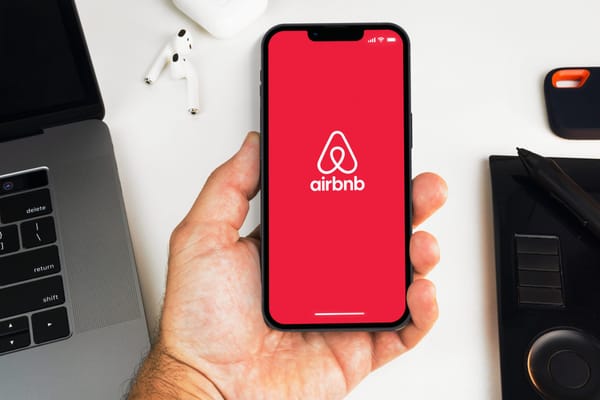Essential Guide to Airbnb Taxes: What Every Host Needs to Know

Airbnb taxes can be tricky to figure out. Follow these useful tips–and consult a tax professional–to help you to file your Airbnb taxes hassle-free.
If you are a host on Airbnb, it’s important to remember that you may owe tax on the income that you receive. For most of the hosts, Airbnb taxes can be tricky to figure out, especially if you rent out multiple properties at a time.
However, you need to pay taxes to ensure that your business runs smoothly and isn’t at risk of incurring penalties. Managing your tax burden effectively can help in reducing overall tax liability.
Fortunately, we have some bits of advice that can help make sorting out your Airbnb taxes easier. Here are 7 tips to help you successfully navigate and potentially reduce your Airbnb taxes.
Understanding Tax Requirements for Airbnb Hosts
Filing and Reporting Airbnb Income
Managing Tax Forms and Compliance
Leveraging Tax Benefits and Deductions
Understanding Local and Self-Employment Taxes

Understanding Tax Requirements for Airbnb Hosts
What Taxes Are Charged on Airbnb?
Airbnb hosts may be required to collect and remit various local taxes depending on their location. These taxes can include occupancy taxes, hotel taxes, or transient lodging taxes. Additionally, Airbnb is required to collect Value Added Tax (VAT) on its service fees in certain countries.
Filing and Reporting Airbnb Income
How to Report Your Airbnb Income on Taxes
Airbnb hosts in the U.S. typically need to report their rental income on Schedule E (Supplemental Income and Loss) of their Form 1040 tax return. If the host provides substantial services to guests, such as meals and cleaning, they might need to report income on Schedule C (Profit or Loss from Business) instead. Keeping detailed records of rental periods, income, and expenses is crucial for accurate reporting.
Does Airbnb Report Taxes to IRS?
Yes, Airbnb reports certain income to the IRS. For U.S. hosts, Airbnb issues Form 1099-K if their earnings exceed $20,000 and they have more than 200 transactions in a year (note that the threshold is expected to decrease to $600 in the future).
Additionally, Form 1099-MISC or Form 1099-NEC may be issued for other reportable income types. For non-U.S. hosts, Airbnb may issue Form 1042-S for reporting withheld taxes.

Managing Tax Forms and Compliance
Completing Essential Tax Forms
Airbnb is required to withhold a full 28% of your rental income if you fail to provide them with a W-9 form, one of the essential tax forms for year-end tax reporting. In most cases, your effective tax rate will be much lower than 28%. So, there is no need to create a hassle that could easily be avoided.
Unless you want to deal with tax authorities holding your overpayment all year long, make sure to file your W-9 form with Airbnb. Once this form is filed, Airbnb can then give you immediate access to the maximum amount of rental income you are permitted to receive according to your tax status.

Keeping Accurate Records
Importance of Record-Keeping for Airbnb Hosts
If you want to fill out your Airbnb tax return correctly, you need to have accurate records of when you rented out your property. In addition to the dates your property was rented out on the Airbnb platform, you’ll also need to keep your own records of the days that you occupied the property yourself.
Accurate records are crucial for proper tax reporting and compliance with US tax law requirements for Airbnb hosts.
Keep in mind that vacation rental sites like Airbnb and Vrbo send a form 1099-K only to hosts who have more than 200 reservations and earned over $20,000. If your profit is less than this, it doesn’t mean that you don’t owe taxes. Keeping records of your reservations will make it easier for you to calculate the amount of tax you should pay.
In addition, you’ll be able to calculate which expenses qualify as business expenses versus personal expenses like mortgage interest. These rental records will also help you to determine if you are eligible for the 14-day rule, which could potentially mean that you owe no Airbnb taxes on your property for the year. By the way, you may ease tracking your Airbnb income by simply using Airbnb software such as iGMS.

Leveraging Tax Benefits and Deductions
Learning About the 14-Day Rule
If you are renting your home on Airbnb or other vacation rental sites, make yourself familiar with the 14-day rule. Understanding tax laws, such as the 14-day rule, can help hosts avoid unnecessary taxes. According to this rule, you are not required to pay Airbnb taxes on income generated from your short-term rental if two conditions are present.
The first condition is that you do not rent your property out for more than 14 days in a year and the second one is that you must use your property personally for at least 14 days of the year (or 10% of the total number of days that you rent out the property to guests). Even if you only rent out a single room of your home, the 14-day rule can still be applied in the same manner as if you had rented out your entire home.
Tracking Your Business Expenses for Tax Deductions
The IRS allows you to deduct business expenses related to your Airbnb business as tax deductions. Business expenses are a very important source of deductions for your Airbnb taxes that could save you a lot of money.
Cleaning fees paid by guests are considered taxable income and should be recorded for tax purposes.
If there are any costs that you incurred, such as buying toiletries for your guest or Airbnb cleaning service fees, these costs can be deducted either partially or completely on your taxes. Some additional examples of business taxes that you can deduct include:
- Maintenance fees
- Utilities
- Property insurance
- Advertising fees
- Property taxes
- Trash removal services
- Property improvements
- Linens (for your guests)
- Furniture (for your guests)
Another major deduction that you should not forget about is the fact that you can deduct the service fees that are charged by Airbnb on your bookings. Just make sure that you maintain all of your receipts related to any deductions that you claim. If you are ever audited by the state or the IRS, you will need to provide documented proof of your deductions.
While keeping track of your business expenses might seem time-consuming, ultimately it means less money that you’ll have to spend on Airbnb taxes. That means more profits for you and more money to invest back into your business.

Understanding Local and Self-Employment Taxes
Learning About Occupancy Taxes
Some local governments impose local taxes, including occupancy taxes, on short-term rentals. Given that Airbnb is not exclusively responsible for helping you to manage your obligations with regard to Airbnb taxes, you may be required to remit these taxes on your own.
The regulations surrounding occupancy taxes vary greatly from one city to the next. In addition, the name of the tax itself may also vary with some cities referring to occupancy tax as a hotel tax or transient lodging tax.
Find out from your local government if you are required to pay this tax and then check with Airbnb to see if Airbnb will remit this tax on your behalf. In many cases, hosts are required to collect this tax directly from guests and submit the money to the tax authority. You can find a list of all of the jurisdictions in which Airbnb currently collects and remits Airbnb taxes on behalf of their hosts here.
Consulting a Tax Professional for Self-Employment Taxes
If you offer additional services for your Airbnb business, such as meals or laundry services, the IRS may actually consider you as running a business rather than as receiving passive income as a real estate investor. In this case, you will have additional tax obligations, including the requirement to report your income and expenses as self-employment income.
If you are self-employed, you’ll also be responsible for paying self-employment taxes, in addition to income taxes. Self-employment taxes include Social Security and Medicare contributions on the income that you earned as a result of being in business for yourself as an Airbnb host.

Meeting Tax Deadlines
Filing Your Income Tax Return and Paying Your Airbnb Taxes On-time
We are all aware of the annual April 15th deadline for income taxes. However, if you are also required to pay self-employment taxes or occupancy taxes, you will need to know those filing deadlines as well. Make sure to pay your Airbnb taxes on-time so that you do not end up owing penalties and interest on your tax bill.
Airbnb understands that taxes are a necessary component of managing your Airbnb business so they have created some resources to help hosts. However, it is ultimately up to you to make sure that you pay all of the Airbnb taxes that you owe.
Useful Tax Resources
Here are some valuable resources to help you manage your Airbnb taxes:
- IRS Website: Comprehensive information on tax forms, deductions, and filing requirements.
- Airbnb Help Center: Detailed articles on tax obligations for hosts.
- TurboTax: Tax filing software with features for rental property income.
- H&R Block: Tax preparation services and resources for short-term rental hosts.
- Nolo: Legal guides and articles on rental property taxes.
- CPA Directory: Find a certified public accountant (CPA) specializing in real estate and rental properties.
- National Association of Tax Professionals (NATP): Resources and professional support for tax-related issues.
- Tax Foundation: Research and data on tax policies and their implications.
- State and Local Tax Websites: Check your state’s Department of Revenue or local tax authority website for specific tax guidelines and updates.
Final Thoughts
Navigating the complexities of Airbnb taxes can be daunting, but understanding and following the essential tips outlined in this guide can significantly ease the process. From knowing what taxes are charged and how to report your Airbnb income, to keeping accurate records and leveraging tax deductions, staying informed and organized is key to managing your tax obligations effectively. Remember to stay on top of local and self-employment taxes and ensure you meet all filing deadlines to avoid penalties.
Final Tip: Always consult with a tax professional to ensure you’re fully compliant with all tax laws and taking advantage of all possible deductions.
It’s also important to regularly review any updates to tax laws and regulations that may impact your Airbnb hosting activities. They can change frequently, and staying informed can help you avoid unexpected liabilities and take advantage of new deductions or credits.
Additionally, using professional tax software or engaging with a tax advisor who specializes in short-term rentals can provide tailored advice and strategies to maximize your tax efficiency. This proactive approach can save you time and money, ensuring that you remain compliant and optimize your tax position.
To simplify your short-term rental management further, consider using iGMS. With features that streamline booking, guest communication, cleaning management, and financial tracking, iGMS helps you focus on what matters most—running a successful Airbnb business. iGMS also offers financial reporting tools that can integrate seamlessly with your tax preparation process, making it easier to keep track of your income and expenses throughout the year. Let iGMS handle the operational tasks, so you can stay organized and stress-free during tax season.
Legal Disclaimer
iGMS and its affiliates do not provide tax, legal or accounting advice. The information contained in this article has been prepared for informational purposes only, and it is not intended to provide, nor should it serve as tax legal or accounting advice. You should consult your own tax, accounting, and legal advisors for assistance in preparing your taxes.






